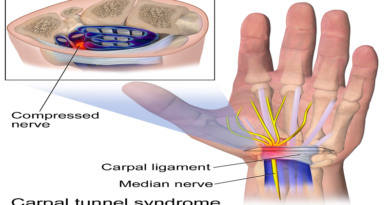Heart Disease and Stroke Prevention
According to the research and statistical survey conducted by Centers Disease Control and Prevention, there were almost 47% of the US people population who were associated with cardiovascular diseases namely heart attack, uncontrollable high blood pressure, stroke, and the like. For every 42 seconds, some people die due to a heart attack. On the other hand, around every four minutes, there were some people die due to stroke.
Heart-related diseases are alarming to the people due to its unexpected symptoms. In most cases, this disease is also identified as a silent killer because it may happen to anyone regardless if healthy or not. Some of the risks factors that may contribute to heart diseases include obesity, unhealthy diet, smoking, high blood pressure, diabetes, and high cholesterol. It is recommended to seek medical advice and find best doctors in U.S. to prevent the risk of the heart disease as soon as possible.
Understanding the implication of heart diseases and stroke
A regular health examination is a highly recommended monitoring activity to determine the status of one’s health. It is very important that a person should undergo a complete check-up every quarter or annually to detect any health-related issues.
Cardiovascular diseases are difficult to examine because the patient will need to undergo various tests to finally arrive at the result. In this way, the physician will be able to check the patient’s health condition and recommend appropriate medical treatments.
There were several treatments for every heart-related problem which includes Electrocardiogram (ECG), Echocardiogram, Cardiac Catheterization, Holter Monitoring, Stress Test, Cardiac Magnetic Resonance Imaging (MRI), and Cardiac Computerized Technology Scan (CT Scan).
Differences between Heart Attack and Stroke
A heart attack occurs when the oxygenated blood going to the heart becomes impaired and the circulation of the blood flow starts to experience blockage. The blood clotting around the heart area causes the blockage of the blood flow. Hence, it will eventually make the heart muscle to contract in a difficult manner. On the other hand, a stroke occurs when the oxygenated blood going to the brain become distorted.
How to prevent heart diseases and stroke?
01. Monitor your Blood Pressure
Experiencing high blood pressure has a crucial impact and risks in getting a heart attack. Keep your blood pressure monitored regularly and check it at least quarterly or annually to immediately determine your blood pressure condition.
To check the blood pressure, you should have at least a blood pressure monitors to test and read your BP instantly. Make sure to have a regular appointment with your doctor so that this professional can provide you an advice and medical prescriptions if needed. If you have a blood pressure monitor at home, it is recommended by most doctors to take a frequent blood pressure test. Let’s say two to three times blood pressure readings in the morning and night as well. You can do this around two to three times a week to have a better gauge of your blood pressure.
02. Have a Healthy Diet
You need to develop a healthy diet scheme to avoid the risks factors for heart attack and any other related diseases. Get regular exercise, drink plenty of water at least 8 glasses per day, eat nutritious fruits and vegetables, and somehow, reduce your meaty eating habits especially for adults.
03. Manage Stress
Learn how to manage your stress effectively to keep you comfortable and relax. As much as possible, lessen your coffee intake because it may affect your body clock and sleeping routines. Learn how to manage your time so that you won’t be overpopulated with tasks and become stress. Make sure to deal properly with any circumstances that may arise out of anger or anxiety. Lastly, always find a suitable and spare time to unwind, relax, sleep, or take a good nap.
04. Have a Sufficient Hours of Sleep
Nowadays, people were starting to have a new shift in their sleeping habits. Sometimes, some people drink coffee before going to bed and the worst, they’ve become mentally active and cannot sleep on time. Some people can’t stop watching TVs, playing games with their laptops or smartphones in which these activities make their sleeping routines disrupted. To encourage everyone to have a sound and relaxing sleep, make sure to drink milk before going to bed. Learn how to manage your time in doing activities related to gadgets. Make sure to at least get 7 to 8 hours of sleep per day.
05. Avoid Smoking and Reduce Alcohol Intake
Alcoholism has a similar effect as to coffee while cigarette smoking contains nicotine which may disrupt sleeping routines. Both smoking and alcohol drinking may bring bad effects to your health and daily lifestyle. If you cannot remove these habits in one snap, make sure to eventually lessen smoking and alcohol drinking until you were able to quit successfully. Always keep in mind that smoking and drinking alcohol may trigger heart diseases and stroke.
06. Treat your Diabetes
Diabetes is linked to heart diseases and stroke due to its capability to damage the blood vessels. When these vessels get damage, blood clotting will start to form around the areas of the cardiovascular system. As much as possible, treat your diabetes and seek immediate medical advice from the expert physicians.
07. Treat your Atrial Fibrillation
The case where blood clots are formed in the hearts due to the irregular heartbeat is called atrial fibrillation. It should not be taken lightly because it can cause a stroke by the clots traveling all the way to the brain.
Symptoms that you should look out for are shortness of breath and heart palpitations. If any of these symptoms occur, seek for your doctors’ advice after examination. One possible medication that your doctor might give is an anticoagulant drug which works by making your blood thinner to fight blood clotting to reduce the risk of stroke due to atrial fibrillation.




